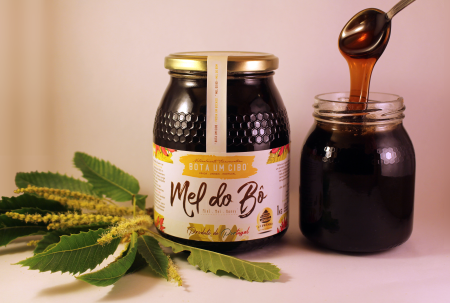
Objective:
Chestnut orchards are one of the most profitable crops in the Montesinho Natural Park (PNM) area, with chestnuts representing a large share of many families' income. Besides the fruit, other products make it a multifunctional culture, among them, honey. This and other beekeeping derived goods represent a way to value the existing flora and to promote a territory with reduced harmful human impact (e.g. pollution). This product is probably what best characterizes this natural park, revealing the intricacies of this region on its flavour.
Context:
In recent years, beekeepers in the PNM area have been increasing their number of hives, making the beekeeping activity gain prominence and professionalism, something that can be observed in the various individual brands that have emerged. They have the support of the PNM Producers Group, which monitors diseases in the Controlled Zone of Terra Fria, and works on honey promotion based on a PDO of recognized value. Chestnut nectar has properties that give these honeys very appealing characteristics, which are increasingly appreciated and valued.
Contacts:
Ana Tomás, Antero Sousa, geral@botaumcibo.pt, http://www.botaumcibo.pt/, https://www.facebook.com/botaumcibo/
Further information:
Mel do Parque Natural de Montesinho DOP – Caderno de especificações
https://tradicional.dgadr.gov.pt/pt/cat/mel/920-mel-do-parque-de-montesinho-dop
Orantes, J., Gonell, F., Torres, C., Gómez-Pajuelo, A. (2018) Guía de mieles monoflorales Ibéricas
https://www.pajueloapicultura.com/guia-de-mieles-monoflorales-ibericas/